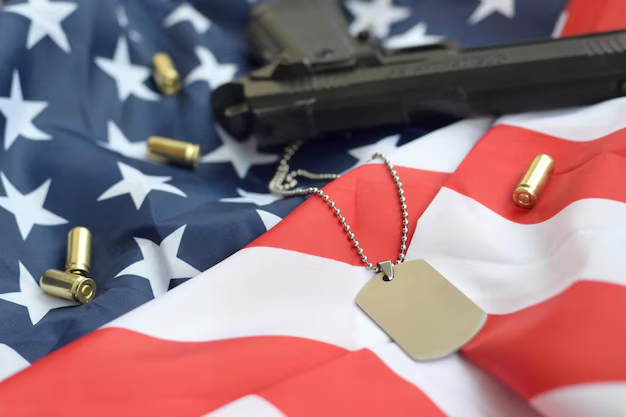Navigating Gun Transfers in Florida: A Comprehensive Guide
When it comes to transferring firearms, navigating the legal landscape can seem daunting, especially in a state as populous as Florida. Whether you're a gun owner looking to transfer ownership, or a potential buyer hoping to stay within the legal bounds, understanding the requirements and regulations involved is crucial.
Why Proper Transfer Matters
Before diving into the specifics, it's worth noting why legal transfers are significant. Transferring a firearm legally isn't just about compliance; it's about ensuring the safety and security of everyone involved. It minimizes the risk of guns falling into irresponsible hands and protects both buyers and sellers from potential legal repercussions.
Main Regulations for Gun Transfers in Florida
Understanding Federal vs. State Laws
The world of gun legislation contains both federal and state laws. While federal laws provide a baseline, state regulations can vary significantly. In Florida, state laws govern private sales, meaning that individual transfers may not always be subjected to federal scrutiny but must adhere to state guidelines.
Legal Age Requirements
In Florida, the minimum age to purchase a firearm is 18 for long guns (such as rifles and shotguns) and 21 for handguns. Important: The age requirements do not change in private sales, meaning private sellers must confirm the buyer meets these minimum ages.
Conducting a Background Check
For private firearm transfers in Florida, sellers are not required to conduct a background check or facilitate the transfer through a licensed firearms dealer. However, a prudent step is voluntarily arranging for a background check to ensure the buyer is legally eligible to own a firearm. For dealers, the Florida Department of Law Enforcement (FDLE) conducts background checks.
Waiting Periods Involved
Florida imposes a mandatory three-day waiting period for handgun purchases from retail stores. This waiting period applies only to handguns and excludes trades and private transactions. Remember, counties can impose additional waiting periods, so always check local laws.
Paperwork and Record Keeping
Though Florida doesn't require registration of firearms nor record-keeping for private transfers, maintaining a record of the transaction, including the buyer’s and seller's information and firearm details, can be wise for legal protection.
Special Considerations
Transferring Family-Owned Firearms
Family transfers, such as gifts among immediate family members, often face less scrutiny but should nonetheless follow age requirements and legal eligibility. Despite the familial relationship, ensuring the recipient isn't prohibited from owning firearms is crucial.
Involving Inherited Firearms
When firearms are inherited, handling the transfer legally requires attention to both estate laws and firearm regulations. Normally, no formal transfer process is required if inheritance is properly documented within the will. However, ensure all beneficiaries are eligible per state laws.
Interstate Transfers
For interstate transfers involving Florida, the process typically involves a licensed firearms dealer in the buyer's state. Consulting with a legal expert familiar with both states' laws is advisable to avoid complications that could arise from crossing state lines.
Practical Steps for a Legal Transfer
Sellers: Ensuring a Legitimate Sale
- Verify the buyer’s age and eligibility.
- Consider having the transfer processed through a Federal Firearms License (FFL) dealer, even for private sales, as this ensures both parties are informed and compliant.
- Keep a detailed record of the transaction.
Buyers: Preparing for Purchase
- Confirm you’re legally eligible based on age and past record.
- Be ready to provide ID and other verification as required.
- Understand the local laws, including any additional waiting periods.
Completing the Transaction
- Meeting at a neutral location can add safety to the transaction.
- If possible, involve an FFL dealer to conduct the background check.
- Exchange agreed-upon payment and confirm the receipt of the firearm.
Legal and Safety Considerations
Protecting Liability as a Seller
- Ensure every transaction is conducted with due diligence.
- Clearly document the sale to protect against future claims.
Safety Measures for Gun Owners
- Always educate the transferee on safe firearm handling and locking mechanisms.
- Discuss and provide information on safe storage practices to prevent accidents.
Key Takeaways: Practical Tips and Next Steps 📝
- Verify Eligibility: Always check that a buyer meets age and legal requirements.
- Consider an FFL: Using a licensed dealer can simplify the transfer process.
- Maintain Records: Protect yourself by keeping a detailed transaction record.
- Local Regulations Matter: Always check if there are unique rules in your local area.
- Safety First: Ensure all parties understand safety protocols for handling firearms.
By following these guidelines and remaining informed about the specific laws governing firearm transfers, both buyers and sellers can confidently navigate the complexities of legal gun transfers in Florida. Remember, staying informed and cautious is the best strategy to ensure a smooth process that respects and upholds the law.

Related Topics
- How Can I Transfer Data From One Laptop To Another
- How Can I Transfer Domain To Godaddy
- How Can I Transfer My Calls To Another Phone
- How Can I Transfer Pdf To Word
- How Can We Transfer Data From One Laptop To Another
- How Can You Transfer Data From One Phone To Another
- How Can You Transfer Emails From One Account To Another
- How Can You Transfer Vhs Tapes To Dvd
- How Do I Transfer a Prescription From Walgreens To Cvs
- How Do I Transfer Data From Ipad To Ipad
